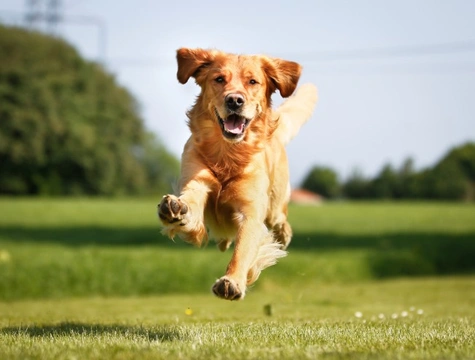
Five ways to make life easier for your dog with allergies this summer
As the weather starts to get warmer, this can indicate many changes for dogs that are prone to skin problems. For dogs that tend to be sensitive to developing dry and flaky skin, the warmer weather and turning off the heating in the house can often help with their symptoms, for instance. However, for dogs that are prone to seasonal allergies, things might be just about starting to affect them now, and left unchecked, dogs that suffer from atopic dermatitis or other forms of atopy and allergies might be in for an itchy few months.
If your dog is prone to suffering from the effects of allergies during the warmer months, such as by developing itchy skin, the sneezes or sore, runny eyes, this can make them just as unhappy and uncomfortable as a person in the throes of full-blown hay fever. However, there are some steps that you can take to make their lives a little easier while allergy season is in full flow, and minimise the effects that their allergies may have on them this year. Read on to learn more.
1. Talk to your vet
Your vet should be your first port of call when it comes to any problems with your dog, and this includes problems that might be relatively minor in the greater scheme of things, such as allergies and sensitivities. While low-level allergies may be seasonal and are rarely life threatening, they can make the summer miserable for your dog, and it is important to do all you can to keep them comfortable.
One of the most important things that your vet can do is to help you to identify the causes of your dog’s allergies and find out what their triggers are, and in some cases, these triggers are things that you can exert some control over.
Your vet may also recommend giving your dog an antihistamine, or another form of medication that can help them to battle their allergies on a day to day basis and mute the body’s reactions to their triggers.
2. Bathing your dog
Dogs that are allergic to such common things as grass or pollen particles find it very hard to get away from exposure to their triggers, and allergies such as these are ones that it can be pretty much impossible to limit exposure to when you take into account their daily walks.
However, your dog is not only at risk from pollen particles in the air and brushing through grass and other plants when out on walks, but due to the fact that pollen and other protein particles will also tend to cling to your dog’s coat, prolonging their exposure to their trigger long after they come back inside.
Regularly bathing your dog to remove pollen and other substances can help to limit their exposure, as can sponging your dog off with a damp sponge or cloth when they come back in from their walks.
3. Keeping their eyes clean and comfortable
Sore, runny or itchy eyes are no fun for anyone, and will certainly annoy your dog. Wiping your dog’s eyes off a couple of times a day with a clean, damp cloth can again help to remove triggering substances, as can irrigating your dog’s eyes with a simple, sterile solution from your local chemist.
Your vet may also prescribe eye drops for your dog to help to counteract itchy, sore eyes, and if the problem is pronounced, they may even recommend steroid eye drops. Do not use any human eye drops on your pet, nor any other substance without speaking to your vet first.
4. Cleaning the ears
Cleaning the ears might not seem like one of the most obvious ways to help your dog deal with allergies, but in some cases, it can help! The ears will tend to catch and harbour pollen and other particles in the guard hairs, and allow allergenic triggers to collect there.
Keeping your dog’s ears clean and clear, and trimming any overly long hair, can help to keep your dog comfortable in many ways.
5. Dietary changes
Seasonal allergies are generally triggered by external factors such as pollen, and are generally distinct from food allergies. However, consider changing your dog over to a grain-free diet (speak to your vet first) as in some cases, sensitivities can be enhanced by the presence of more than one allergenic trigger, and for some dogs, this can include grains commonly found in pet foods.
Don’t forget that if you want to try your dog out on a grain free or a sensitivity diet, you will also need to review the type of treats that you give to your dog, to ensure that these support their diet, and are grain free as well.



